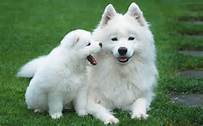Welcome to part 2 of the holiday Q and A with Dr. Rachel Casamina of the Sunnyvale Veterinary Clinic.
Q: What human foods are toxic or ill advised to give to dogs or cats?
A: I tried to come up with 10 that might be common around the holidays.
1) Chocolate
2) Sugarless candies or gum (containing xylitol)
3) Grapes or raisins
4) Onions/garlic
5) Macadamia nuts
6) Raw, undercooked meat/eggs
7) Nutmeg (small amounts in baked goods are ok)
8) Anything with caffeine
9) Fruits with pits
10) Rising bread dough
When in doubt, stick to the pet food! I think ASPCA or your pet insurance company may have a more comprehensive list.
If your pet ingests anything that it shouldn’t (or even if you’re not sure), call your veterinarian right away. It is a lot more cost-effective and successful to cause your pet to vomit the substance before he feels ill than it is to treat a poisoning once symptoms arise.
Q: Is it safe to have Mistletoe around pets?
A: Mistletoe will cause some digestive upset (vomiting, diarrhea) if ingested. Large amounts can cause cardiac depression (this would manifest as lethargy), but this is very rare since most households do not have very much. I am also commonly asked about Poinsettia, which also causes digestive upset, but this tends to resolve without aggressive therapy. ASPCA definitely has a comprehensive list of poisonous plants on their website, check it out and keep those plants in a place where your pets can’t get them.
Q: How do I keep my cat from climbing the Christmas tree?
A: Haha! What a great question. I am still trying to figure this one out. The only foolproof way is to keep the Christmas tree in a room that the cat does not have access to, but this is usually not very practical. So, we’re left with pet-proofing strategies that are very similar to child-proofing. Keep the tree away from surfaces that would allow your cat to leap onto it, such as shelves, couches, or other furniture. Just in case, it’s always best to secure the tree to a wall or column, which isn’t a bad idea in earthquake country anyway. This way it won’t topple over if my other tips aren’t successful. J
I like the motion-activated SSScat compressed air device because it’s safe, painless, but startling enough to deter a cat from entering a restricted area. And they won’t associate this negative stimulus with you, unlike yelling, so your bond won’t be affected. There are other devices out there, but I prefer the ones with noise or a puff of air rather than a shock (which can be painful). A cheap DIY option is to put a carpet runner upside down at the base of the tree; the little plastic spikes shouldn’t hurt your cat, but they don’t like the sensation. Or you could strategically place a soda can filled with rocks on lower branches- they’ll create a startling noise when knocked over.
Repellent/deterrent sprays are hit or miss. I have met cats that actually LIKE bitter apple flavor, or the like. Also consider that some of these sprays smell so bad that they actually work as a human repellent too. An encircling fence may prevent your cat from pawing/chewing at the lower ornaments. If placed just right, they may not be able to jump over it. Otherwise, remove all ornaments/lights to a level that you think they can’t reach, then move it a little higher J (I have met a cat that ingested an ornament whole!).
In general, in a household with pets, try to avoid tinsel or ribbon, or anything else that can’t be secured to the tree. Also, remember that pine tree needles can cause stomach upset, so vacuum daily!
Q: What is the # 1 reason pets see the Vet during the holiday season?
A: Eating things they shouldn’t. This can cause vomiting and diarrhea or, worst case scenario, poisoning or something that requires surgery!
Q: Do you have any other Holiday Pet Advice?
A: The two most common health problems I see in young animals are obesity and dental disease. These two problems tend to get worse over the holidays since owners (or their guests) like to offer table scraps as a special holiday treat. It’s best to avoid this altogether, but do it sparingly if you must. Think of anything that isn’t dog or cat food as dessert and portion accordingly (these should account for less than 10% of your pet’s intake for the day). Avoid fatty or seasoned foods because these are more likely to make your pet ill. And increase the exercise and brush their teeth more often during this time of year.
Thank you Dr. Rachel Casamina for taking the time to share your insights with us all. I truly appreciate it!
Happy Hollidays to you all, including our furry friends.
Abby Normal
If you missed part one of the interview you can click this link: http://www.associatedcontent.com/article/9176389/holiday_pet_questions_with_dr_rachel.html?cat=53
Sunnyvale Veterinary Clinic
1036 W. El Camino Real
Sunnyvale, CA 94087



